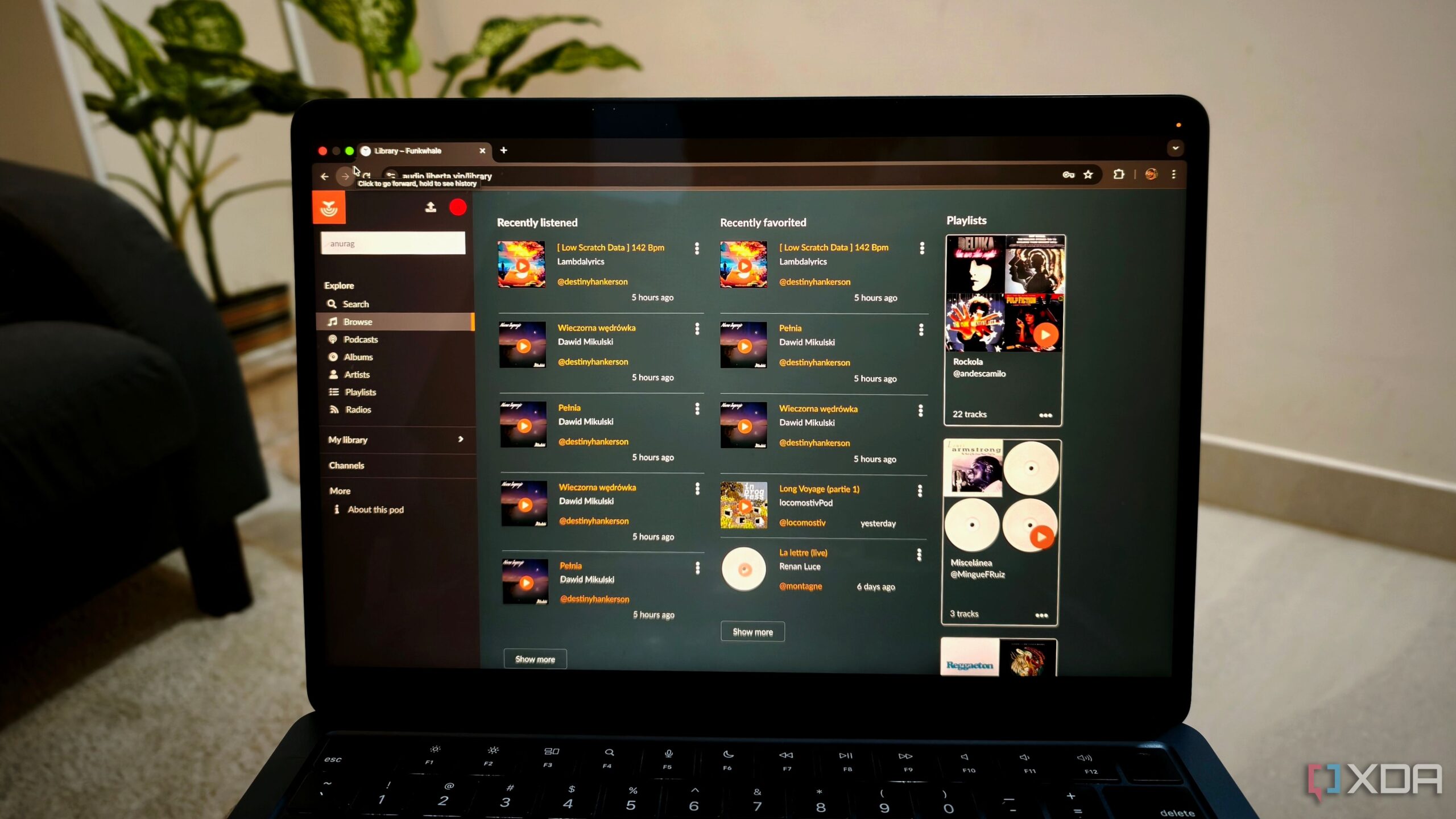UPDATE: A new, free open-source alternative to Spotify, called Funkwhale, is shaking up the audio streaming landscape as of October 2023. Unlike Spotify’s ad-ridden free version and costly premium subscriptions, Funkwhale empowers users with complete control over their music and podcast experience.
This innovative platform allows users to self-host their own music streaming server or join existing communities, providing a unique opportunity to customize and share audio content on their own terms. Funkwhale, which launched after the shutdown of Grooveshark in 2015, has developed into a robust community-driven initiative maintained by a dedicated nonprofit collective.
Why does this matter right now? As streaming costs climb and privacy concerns grow, Funkwhale offers a refreshing alternative that prioritizes user autonomy and data protection. Unlike Spotify, which operates on a closed, proprietary infrastructure, Funkwhale utilizes a decentralized network of servers called pods. This means that users can stream their own libraries, publish original audio, and connect with others without the interference of corporate algorithms or intrusive advertising.
The platform supports a wide variety of content, from music albums and live recordings to podcasts and mixes. Users can either join public pods—many of which welcome new listeners—or host their own, ensuring a tailored experience that aligns with their personal preferences and values. The ease of joining an existing pod makes it accessible to anyone looking to explore new music without the corporate strings attached.
Funkwhale’s architecture is revolutionary. It employs the ActivityPub protocol, the same technology that powers Mastodon, allowing seamless interaction between different Funkwhale servers. Users can follow channels, share streams, and discover libraries across the network, making it a truly collaborative platform. If one pod goes offline, the rest remain functional, ensuring uninterrupted access to content.
For those interested in self-hosting, setting up Funkwhale is straightforward. Users can install it on their own server or virtual private server (VPS) using Docker Compose. The process, although technical, is well-documented, making it feasible for anyone with basic server knowledge to create their own audio streaming environment.
Funkwhale is designed for both casual listeners and those who enjoy tinkering with technology. It provides an audio player experience similar to Spotify, complete with playlist creation, favorites, and radio-style shuffles. The platform also includes podcast support, allowing users to follow independent shows or launch their own.
The stark difference in privacy models between Funkwhale and Spotify is a significant draw. Spotify’s revenue hinges on ads and data collection, even for paying users, while Funkwhale remains ad-free and tracker-free. This shift in focus towards user control and privacy is resonating with those frustrated by corporate data practices.
What’s next? As Funkwhale continues to gain traction, expect an increase in user adoption and the development of new features. Its community-driven model encourages constant innovation and user feedback, promising a dynamic listening environment that evolves with its audience.
Funkwhale’s launch is not just a technical achievement; it’s a movement towards reclaiming control over personal data and audio content. As users turn away from traditional platforms that prioritize profits over people, Funkwhale stands as a beacon for those seeking an independent, customizable, and ad-free music experience.
With the growing interest in open-source technology, Funkwhale is positioned to become a leading player in the audio streaming arena. As more users seek alternatives to mainstream services, Funkwhale’s unique approach is likely to spark conversations about data privacy, community building, and the future of music streaming.
Now is the time to explore Funkwhale and discover a new way to enjoy music and podcasts on your own terms. Share this news with friends and family and join the movement towards a more equitable audio streaming experience.
